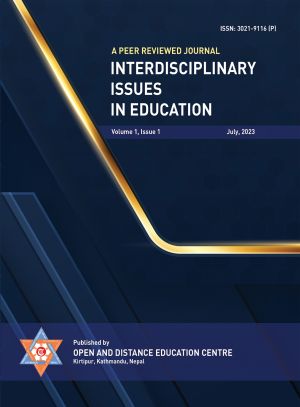Law Making for Women Empowerment in Gandaki Province, Nepal
DOI:
https://doi.org/10.3126/iie.v1i1.58794Keywords:
Inclusive model, equal opportunity, women participation, women empowermentAbstract
The main objective of this study was to evaluate the status of women's empowerment through lawmaking in Nepal's Gandaki Province. Women face oppression and battle for empowerment. According to Nepal's new constitution, women now enjoy legal protections and rights. Similarly, major political parties such as Nepali Congress, Nepal Communist Party UML, and Nepal Communist Party Maoist, which have led the Nepal government from time to time now have the chance to hold positions of leadership, including those of chief justice of the supreme court of Nepal, speaker of the House of Representatives, and President of the federal democratic republic of Nepal. Even though Nepal's Dawarika Devi Thakurati was the first minister in 1959. The Constitution of Nepal (2015) has made the provision of 33% inclusion of women in all the sectors of government including the federal, the provincial, and the municipal. Women are participants at various levels such as legislature, executive, professors of universities, civil servants, Nepal police, Nepal Army, and teacher. Women are currently involved in planning, implementing, and formulating policies. However, they have to overcome many obstacles in order to pursue their opportunities. Nepal is a developing nation that has made an effort to empower women and has given them good opportunities for the country's overall development. In Nepal, women have equal access to opportunities in the social, economic, political, and cultural sectors as well as Nepal's economic development. The present study reveals that the Gandaki province's legislators have played a crucial role in the overall development of this province, and just like the women legislators in the other seven provinces, they empower themselves and institutionalize women's rights by upholding democratic values and norms.
Downloads
Downloads
Published
How to Cite
Issue
Section
License
Copyright (c) 2023 Open and Distance Education Centre (ODEC)

This work is licensed under a Creative Commons Attribution 4.0 International License.
CC-BY-4.0. This license enables reusers to distribute, remix, adapt, and build upon the material in any medium or format, so long as attribution is given to the creator. The license allows for commercial use.




